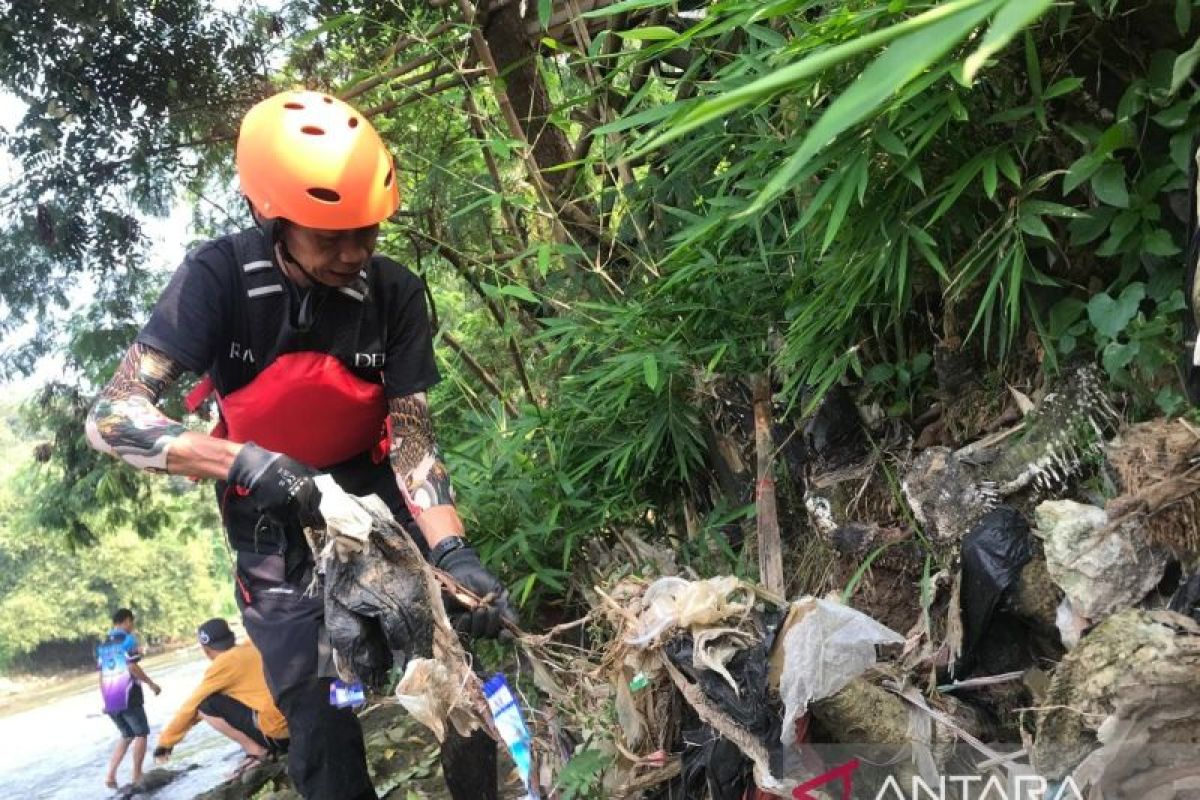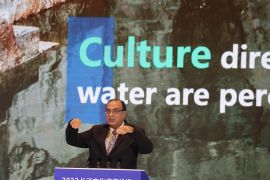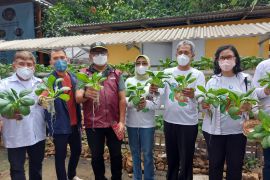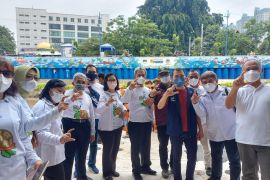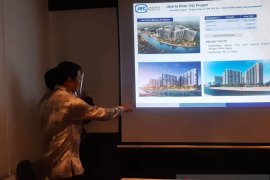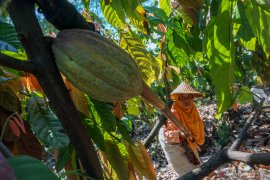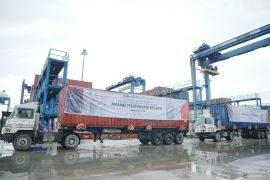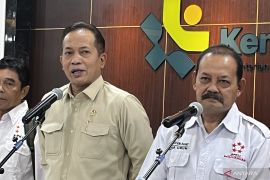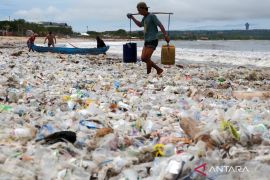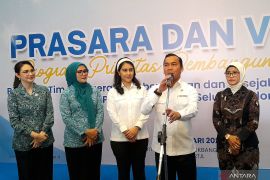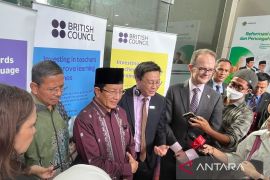As per the data, there were 22 watersheds in the critical category in 1984. Their number increased to 39 in 1992.
The number of critical watersheds climbed to 62 in 1998, and then rose further to 108 in 2020.
Director general of watershed control and forest rehabilitation at the Ministry of Environment and Forestry, Dyah Murtiningsih, said that a rise in the number of critical watersheds would have a big impact on climate change.
According to her, approximately 12.7 million hectares of critical land in Indonesia and 4,200 watersheds need to be restored, and could have a big influence on climate change.
The function of a watershed — as a topographic divider between rivers and lands — is to accommodate, store, and channel the rainwater falling into rivers until it streams into lakes and the sea.
When watersheds reach a critical state due to deforestation, illegal logging, waste disposal, or uncontrolled land conversion, it results in water balance imbalances, shallowing due to sediment, and damage to nutrients and biodiversity habitats.
Therefore, continuous watershed conservation efforts and community involvement are vital.
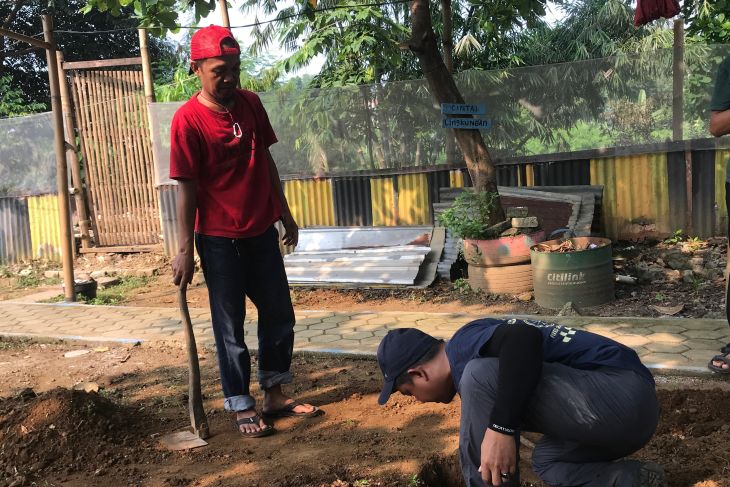
River Defender Ciliwung
One of the efforts to conserve watersheds has been made by Ciliwung River activist, Suparno, and other river defender volunteers at Saung Alkesa on the banks of Ciliwung River in Bogor city, West Java.
Saung Alkesa is a public space, built by River Defender Ciliwung and local community to start the watershed conservation efforts and to be a place of learning for visitors.
For example, a group of students and a community of cyclists visited Saung Alkesa on May 11, 2024, to watch Suparno and the river defenders make a biopore infiltration hole.
"Biopores can be used to absorb rainwater and control puddles. The organic waste put in them can be used as solid fertilizer," Suparno said.
Biopores can reduce the formation of leachate, or rotten liquid formed from the exposure of organic waste piles to water, which can damage the ecosystem and the safety of raw water in Ciliwung River, he informed.
Down at the river on May 11, Suparno invited visitors to find different types of rubbish such as textile waste, baby diapers, optical cables, and even medical waste —all things that should ideally not be there.
Visitors were given an understanding of river clean-up through fun methods, such as walking along the river and working together to remove waste from the middle of the river.
Suparno, who is also a member of the Ciliwung Naturalization Task Force, decided to become a river activist or "defender" after he realized the importance of essential human needs such as oxygen and water and rivers are an important source of surface water and are vital for human needs for clean water.
He and his colleagues began to take part in water conservation efforts by inviting people to directly see and do something about the condition of the river.
Suparno expects that such efforts will influence and prompt many parties — both government and private, individual communities, and groups — to protect rivers.
He said that Ciliwung River's water is still accessed by the Regional Drinking Water Company (PDAM) of Bogor city, Bogor Regency, Depok city, and Jakarta.
If the quality of the water worsens, it will threaten the health and water needs of the civil society, government, and industry that depend on it.
"Because of water security, the availability of sufficient clean water will have a big impact on our health and sufficient food. But when the availability of healthy water is reduced, or even threatened, the next threat is our food security," Suparno explained.
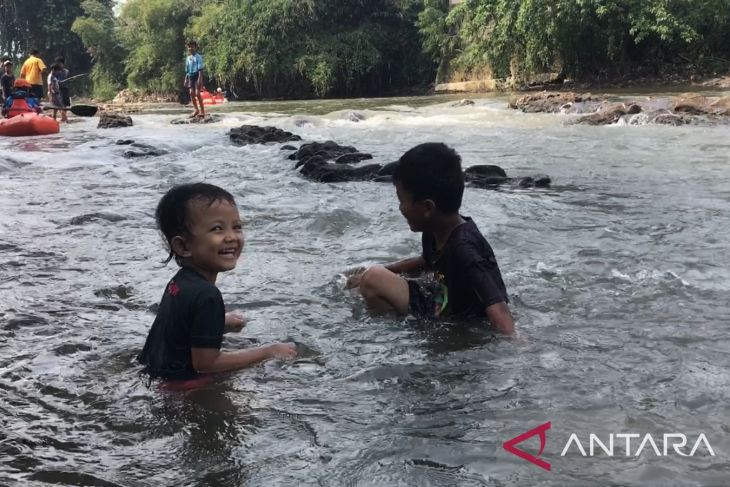
A long effort
Saung Alkesa is just one of Suparno's initiatives. According to him, the steps to restore and conserve the Ciliwung watershed will still take a long time to complete.
"Personally, I am the person who does not accept it when the rivers are insulted by humans with rubbish produced by individuals or groups, or by the community. Either directly dumped the trash in carts, thrown, or dumped on the banks of the river, " he said.
So, from March 2009, Suparno collaborated with the Ciliwung Care Community (Komunitas Peduli Ciliwung) to protect the river, until he joined the Ciliwung Naturalization Task Force in 2018.
The task force provides community assistance for dense traditional settlements and riverbanks in two neighborhood units in 13 sub-districts of Bogor city every day. It works at some crucial locations that do not have access to waste transportation.
As members of the task force, he and his 49 colleagues are trying to get the community involved in managing waste so that it does not enter water bodies.
He has also been advising riverbank dweller against making sheet piles on rivers, and instead, let the vegetation grow naturally so that if the river discharge is high, water can be absorbed from the side by plants around the watershed.
However, according to him, the big task of preserving the Ciliwung watershed, as with other river areas, must be a shared responsibility.
"How can we together understand that this need can be guaranteed to be supplied at all times, by all parties, including society? Regardless of gender, race, class, religion. This is a human right, a human right of the universe," he said.
Suparno further said he hopes that the World Water Forum, which is currently taking place in Bali, will not be mere discussion, but mark the beginning of the understanding that the basic human need for water is facing a very serious threat.
He advised that commitments formed after the event consider water as a vital resource that must be protected together. This would ensure that water does not become a trigger for disaster, hostility, or war in the future.
Related news: Ciliwung care movement launches river ecotourism, edutourism
Related news: 10th World Water Forum diplomatic victory for Indonesia: minister
Editor: Arie Novarina
Copyright © ANTARA 2024
